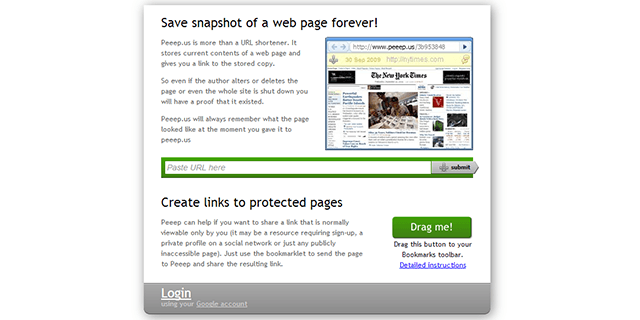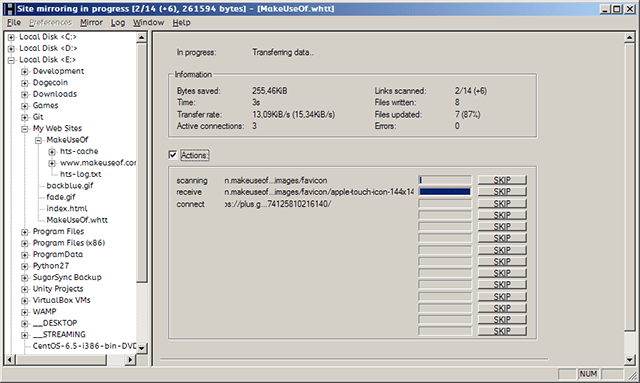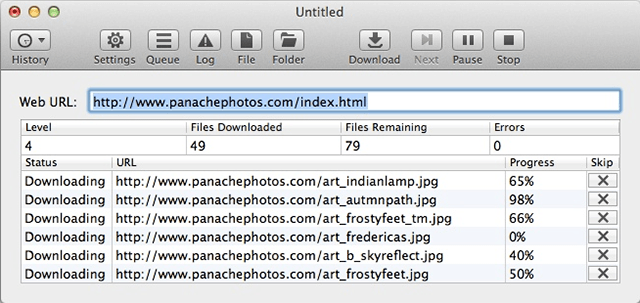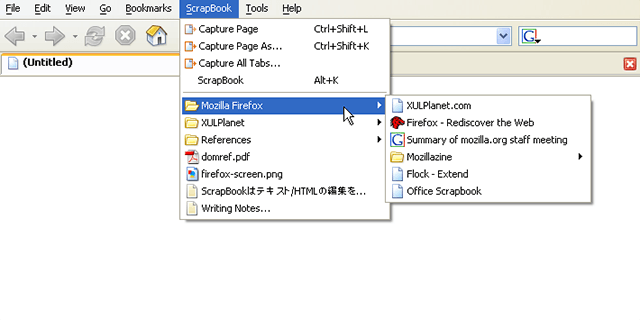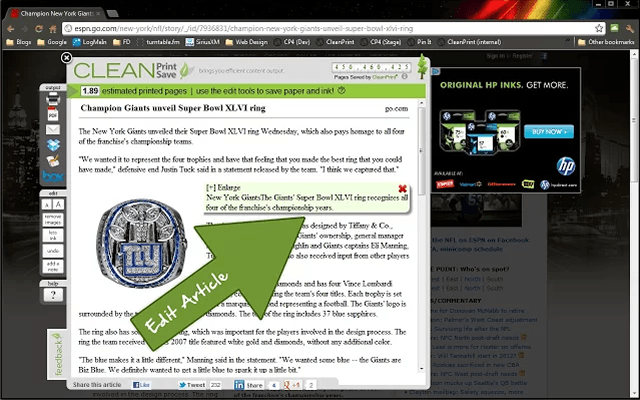There's one HUGE problem with Internet bookmarks: if the website goes down or you have no web access, you're out of luck. Few things are more frustrating than needing a bookmark only to find there's nothing you can do to visit it. Rest assured, however, because there's a handy solution.
Instead of bookmarking a web page, consider archiving it. If you download and store a local copy of the web page, you can access it whenever you want - even if the site itself goes down. The downside is that archives use more hard drive space than bookmarks do, but the trade-off is well worth it.
If you aren't interested in archiving full pages and just want to save certain pages for later, you should take a look at these tools for reading web content later.
Peeep (Free, Web) [No Longer Available]
Peeep is a free web service that's been around since 2009. To use it, all you have to do is input a URL. Peeep will take a snapshot of what the page looks like at the time and provide you with a unique URL for viewing the snapshot.
You can also use a browser bookmarklet that snapshots whatever page you're currently on (instead of having to input a URL).
Peeep is a compromise between traditional bookmarks and web archives. You never actually hold a local copy of the page so there's no burden on your hard drive space. If the page ever goes down, Peeep's copy will still be there. However, if Peeep ever goes down, you'll lose the snapshot.
Local Website Archive (Free/$40, Windows)
Local Website Archive is a nifty little tool that takes a URL and downloads the page directly to your computer. The entire process is quick, painless, and organization is made easy with a folder-based structure. Plus, there's a search function for when you have too many archives to browse.
Even more nifty is the ability to Import/Export your archives in ZIP format. This proves useful as a backup tool (you can never have too many backups) and as a means for transferring local archives to another computer if necessary.
The downside is that the Free version is limited to the most basic actions. For $40 USD, you can upgrade to the Pro version, which unlocks a handful of cool features like removing duplicate archives, saving to custom locations, filtering ads from archives, and more.
HTTrack (Free, Windows/Linux)
HTTrack is similar to Local Website Archive but with a dash of steroids. It's immensely powerful because it doesn't just save single pages; it crawls the entire website and saves it to your computer while maintaining the proper directory structure and keeping all links functional.
While useful, this tool can be dangerous in the wrong hands. You could end up draining a lot of bandwidth from the sites you archive, so be sure to read up on the HTTrack Manual, especially the section on "How Not To Use".
Also, don't be confused by the unusual program names. The Windows version is called WinHTTrack while the Linux version is called WebHTTrack.
SiteSucker ($5, Mac)
SiteSucker is the Mac equivalent of HTTrack. With it, you can asynchronously crawl a website and archive its pages, images, videos, and other files that are publicly visible. It will duplicate the site's directory structure and retain functional links. All you need to do is enter the site's URL.
As of now, SiteSucker only runs on Intel-based Macs that are running OSX Mountain Lion or greater. To run on earlier versions of Mac, you'll need to install earlier versions of SiteSucker, though they may be buggy or lack some of the more recent features.
SiteSucker also exists as an iOS app for $2 USD, but it's nowhere near as powerful or useful as the Mac version.
Scrapbook (Free, Firefox) [No Longer Available]
Perhaps the most convenient solution is to integrate the web archiver right into your browser. For those who use Firefox (or any Firefox variants), the Scrapbook addon will prove mighty useful. It can save single webpages, snippets of a webpage, or entire websites.
Management of archives is simple. You can organize them in the same way that you'd organize browser bookmarks, including the ability to search through and filter them. You can even edit the HTML for archived pages.
It's a great addon that has truly earned its spot on our Best Firefox Addons page.
CleanSave (Free, Chrome) [No Longer Available]
For those of you using Chrome, CleanSave is a nifty extension that's quite flexible in the way that it handles the saving of web content. It lets you save web pages directly to Google Drive, Dropbox, Box, Kindle, or email. On top of that, you can save as PDF or send directly to your printer.
There are two downsides:
1) CleanSave isn't a full-featured archive manager so don't expect to be able to search through the pages you've saved.
2) CleanSave tends to strip web page formatting, so some page elements may be omitted in the save.
If all you want to do is quick-save some page content for later, CleanSave works well. Otherwise, you may want to check out these other Chrome extensions for saving web pages.
Have you ever archived a web page, or an entire site, for later reading? Which tools did you use to do it? Did you prefer it to using traditional bookmarks? Share your thoughts with us in the comments below!


